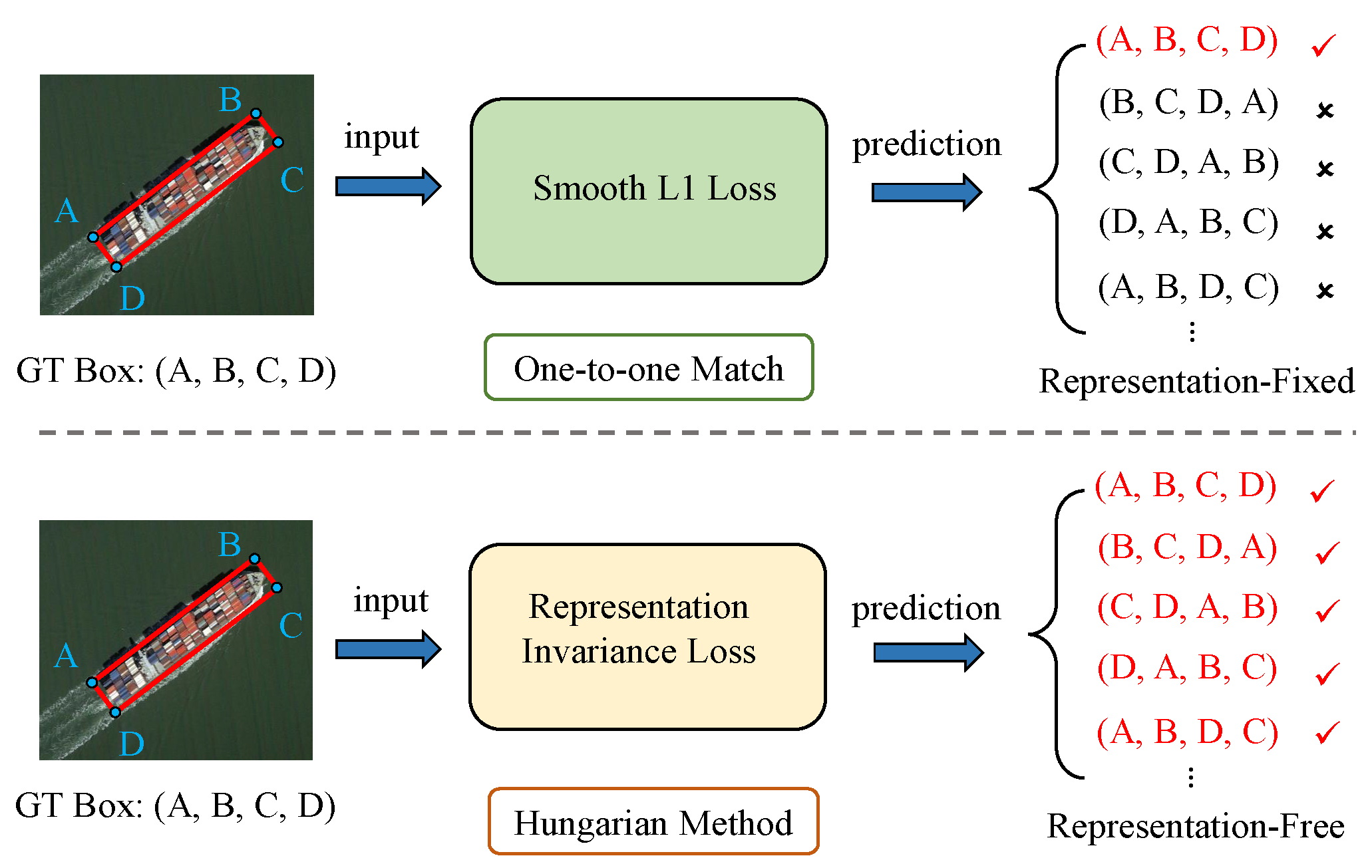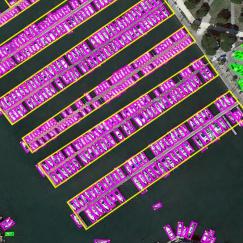Optimization for Arbitrary-Oriented Object Detection via Representation Invariance Loss
Arbitrary-oriented objects exist widely in natural scenes, and thus the oriented object detection has received extensive attention in recent years. The mainstream rotation detectors use oriented bounding boxes (OBB) or quadrilateral bounding boxes (QBB) to represent the rotating objects. However, these methods suffer from the representation ambiguity for oriented object definition, which leads to suboptimal regression optimization and the inconsistency between the loss metric and the localization accuracy of the predictions. In this paper, we propose a Representation Invariance Loss (RIL) to optimize the bounding box regression for the rotating objects. Specifically, RIL treats multiple representations of an oriented object as multiple equivalent local minima, and hence transforms bounding box regression into an adaptive matching process with these local minima. Then, the Hungarian matching algorithm is adopted to obtain the optimal regression strategy. We also propose a normalized rotation loss to alleviate the weak correlation between different variables and their unbalanced loss contribution in OBB representation. Extensive experiments on remote sensing datasets and scene text datasets show that our method achieves consistent and substantial improvement. The source code and trained models are available at https://github.com/ming71/RIDet.
PDF AbstractCode
Datasets
Results from the Paper
 Ranked #27 on
Object Detection In Aerial Images
on DOTA
(using extra training data)
Ranked #27 on
Object Detection In Aerial Images
on DOTA
(using extra training data)






 DOTA
DOTA
 MSRA-TD500
MSRA-TD500